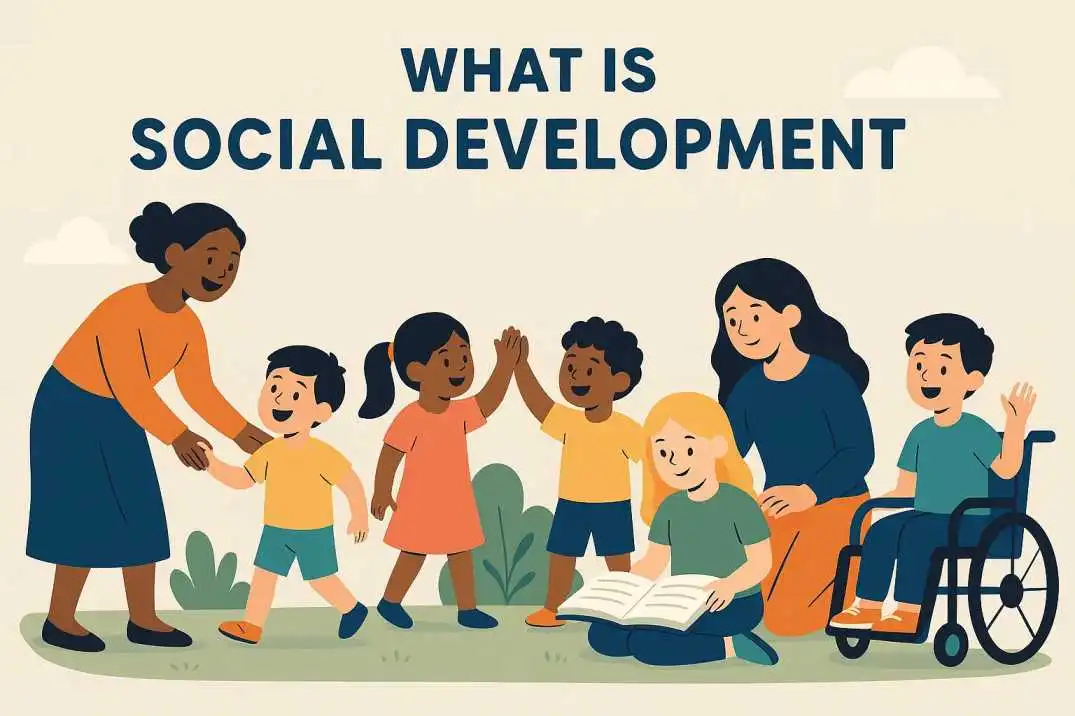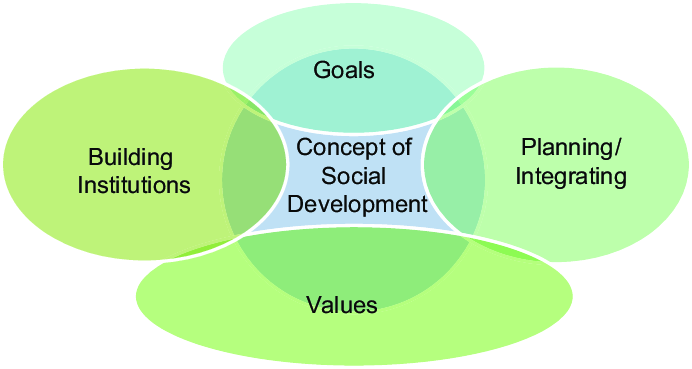
Wat Is Social Development?
In today's fast-paced world, academic achievement often takes center stage. But behind every successful student, professional, or relationship lies something even more fundamental—social and emotional development. This vital aspect of human growth influences how we relate to others, manage our emotions, and navigate the complexities of life.
Whether you're a parent, educator, or simply someone interested in human behavior, understanding social and emotional development is crucial. Let’s explore what it means, why it matters, and how we can support it at every stage of life.
What Is Social Development?
Social improvement alludes to the handle by which a child learns to associated with others around them. As they create and see their possess distinction inside their community.

They moreover pick up abilities to communicate with other individuals and handle their activities. Social advancement most frequently alludes to how a child creates companionships and other connections, as well how a child handles strife with peers.
Why Is Social Advancement So Important?
Social improvement can really affect numerous of the other shapes of improvement a child encounters. A child’s capacity to connected in a sound way with the individuals around her can affect everything from learning unused words as a little child, to being able to stand up to peer weight as a tall school understudy, to effectively exploring the challenges of adulthood. Solid social advancement can offer assistance your child:
Read Also: How to Automate LinkedIn Outreach Strategy?
Develop dialect aptitudes. An capacity to associated with other children permits for more openings to hone and learn discourse and dialect abilities. This is a positive cycle, since as communication abilities move forward, a child is way better able to relate to and respond to the individuals around him.
Build self regard. Other children give a child with a few of her most energizing and fun encounters. When a youthful child is incapable to make companions it can be disappointing or indeed excruciating. A solid circle of companions strengthens a child’s consolation level with her possess individuality.
Strengthen learning abilities. In expansion to the affect social improvement can have on common communication aptitudes, numerous analysts accept that having solid connections with peers (from preschool on up) permits for alteration to distinctive school settings and challenges. Ponders appear that children who have a difficult time getting along with classmates as early as preschool are more likely to encounter afterward scholastic difficulties.
Resolve clashes. More grounded self regard and way better dialect abilities can eventually lead to a superior capacity to resolve contrasts with peers.
Establish positive state of mind. A positive state of mind eventually leads to superior connections with others and higher levels of self confidence.
How can guardians make a distinction when it comes to social development?
Studies appear that regular encounters with guardians are principal to a child’s creating social skill-set. Guardians give a child with their exceptionally to begin with openings to create a relationship, communicate and connected. As a parent, you too demonstrate for your child each day how to associated with the individuals around you.

Because social advancement is not talked around as much as a few other formative measures, it can be difficult for guardians to get it the prepare AND to assess how their child is creating in this range. There are a few fundamental formative points of reference at each age, as well as a few accommodating tips a parent can utilize to back their child. To know who developed social cognitive theory?
Infants & Toddlers:
During the to begin with 2 a long time of life, gigantic sums of advancement are quickly happening. You can anticipate your child to:
- Grin and respond emphatically to you and other caregivers
- Create stranger anxiety—though it can be disappointing, this is a typical step in development
- Create an connection to a consolation protest such as a cover or animal
- Start to appear uneasiness around other children
- Mimic grown-ups and children—just as a child creates in other ways, numerous social abilities are learned essentially through replicating what a parent or kin does
- As of now be influenced by feelings of guardians and others around them
As a parent, you can:
- React to your baby’s needs promptly—your child is learning how to believe someone
- Make eye contact with your baby—get down to their level and interface outwardly when you associated with them
- Chatter and conversation to your infant, continuously stopping to permit them to respond
- Play copycat with words and actions
- Play “peekaboo”—this educates your child that indeed if you “disappear” you will come back, and sets the organize for less stranger uneasiness in the future
- Include your child in every day exercises such as running errands or going to friends—this appears them how you associated with others in a aware, positive way
- Start to organize playdates so that your child can connected with peers
Preschoolers:
By this age, the arrange has been set in the most punctual a long time (generally by parental and other family intuitive) for a child to department out. As preschool starts your child can:
Investigate independently
Express love transparently, in spite of the fact that not continuously accurately—there can still be much dissatisfaction for your child as dialect advancement is still happening
Read Also: How Luther Social Media Maven Keezy.co?
- Still appear a few stranger anxiety
- Culminate the mood tantrum—it can be upsetting, but fits are a typical portion of child development
- Learn how to alleviate themselves
- Be more mindful of others’ emotions
- Participate with other children
- Express fear or uneasiness some time recently an up and coming occasion (such as a specialist visit)
As a parent, you can:
- Illustrate your claim adore through words and physical affection—which is a awesome way to start instructing a child how to express other feelings as well
- Offer assistance your child express their feelings by talking through what they are feeling
- Play with your child in a “peer-like” way to energize agreeable play—this is accommodating when they are in a bunch environment and have to share toys and cooperate
- Proceed to give play dates and openings to associated with other children
- Give illustrations of your believe in others, such as your claim companionships or other relationships
School children:
By 5 and more seasoned, a child’s social improvement starts to reach unused levels. This is a point in time when most children will spend more hours in a day with other children than with their guardians. It is typical for them to:
Flourish on Friendships
- Need to it would be ideal if you companions, as well as be more like their friends
- Start to recognize control in connections, as well as the bigger community
- Recognize and fear bullies or show bully-like behavior themselves
- As early as 10, children may start to dismiss parents’ supposition of companions and certain behaviors—this is a typical step, but can be particularly baffling for parents
As a parent, you can:
- Conversation with your child around social connections and values by inquiring them approximately school and companions each day
- Permit children the opportunity to talk about social clashes and problem-solve their reactions/actions
- Talk about the subject of bullying and badgering, both in individual and on the Internet
- Permit more seasoned children to work out regular issues on their own
Keep the lines of communication open—as a parent, you need to make yourself accessible to tune in and bolster your child in non-judgmental ways. In this blog, to know complete information about the Who developed social cognitive theory?
Your child’s social advancement is a complex issue that is always changing. But the great news is that guardians can have a huge affect on how it advances. By modeling sound connections and remaining associated with your child.
You can offer assistance them relate to the individuals around them in positive, useful ways. By empowering them to lock in with other children and grown-ups, you’re setting them up to appreciate the benefits of social health—from great self regard to solid communication aptitudes to the capacity to believe and interface with those around them.

